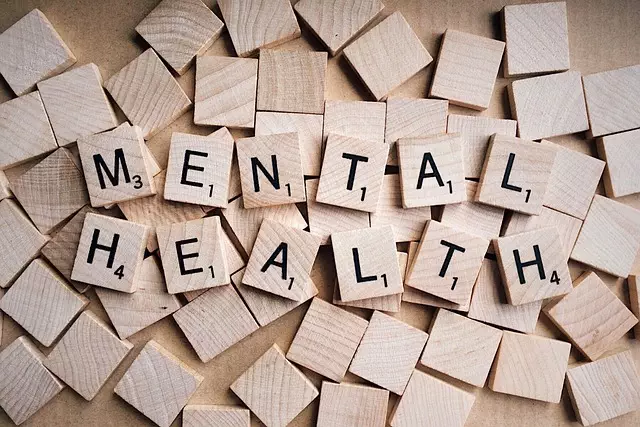Mental wellness journaling, encouraged by the Kaiser Permanente Mental Health Access Center in Littleton, is a powerful self-reflection tool. By documenting thoughts and experiences, individuals gain emotional awareness, uncover triggers, and promote personal growth. Mindfulness meditation techniques enhance this process, offering mental clarity. Public awareness campaigns integrated into journaling break down mental health stigmas while fostering open conversations about wellness. Regular writing provides stress reduction, crisis intervention, and gratitude practices, laying the foundation for improved overall well-being.
Unwind your mind and embark on a journey of self-discovery through the powerful practice of mental wellness journaling. This article guides you through understanding this personal exploration tool, leveraging research from Kaiser Permanente on its emotional well-being benefits. Learn practical tips and techniques from the Littleton Mental Health Access Center to set up your journaling practice and unlock insights that foster growth. Discover prompts tailored to enhance self-reflection, ensuring a transformative experience.
- Understanding Mental Wellness Journaling: A Personal Exploration Tool
- The Benefits of Journaling for Emotional Well-being (According to Kaiser Permanente)
- Setting Up Your Journaling Practice: Tips and Tools from the Littleton Mental Health Access Center
- Techniques and Prompts to Enhance Self-Reflection and Growth
Understanding Mental Wellness Journaling: A Personal Exploration Tool

Mental wellness journaling is a powerful tool for self-exploration and personal growth. It involves setting aside time each day to reflect on one’s thoughts, feelings, and experiences, often in the form of writing. This practice, encouraged by many institutions like the Kaiser Permanente Mental Health Access Center in Littleton, allows individuals to develop a deeper understanding of their emotional landscape. By documenting both positive and challenging moments, individuals can identify patterns, gain insights into their triggers, and cultivate self-awareness—a cornerstone for improving mental wellness.
Incorporating mindfulness meditation techniques within journaling practices can enhance its effectiveness. Mindfulness encourages being present in the moment, observing thoughts and emotions without judgment. This cultivates a sense of calm and clarity, enabling individuals to better process their experiences. Additionally, public awareness campaigns and development of mental wellness coaching programs can support those interested in integrating this practice into their lives, providing guidance, resources, and community for sustained mental wellness journeys.
The Benefits of Journaling for Emotional Well-being (According to Kaiser Permanente)

Journaling has emerged as a powerful tool for emotional well-being, and according to Kaiser Permanente’s Mental Health Access Center in Littleton, it offers numerous benefits for mental wellness. Through regular writing practices, individuals can develop a deeper understanding of their emotions and thought patterns. This self-reflection encourages personal growth by identifying areas for improvement and fostering resilience against stress and anxiety.
The center highlights that journaling serves as an effective Stress Reduction Method, allowing people to process and release built-up tension. It also facilitates the development of Public Awareness Campaigns focused on mental health, as sharing personal experiences through written words can inspire others and break down stigmas associated with emotional struggles. Moreover, engaging in this activity can be a creative outlet, contributing to overall Mental Wellness Podcast Series Production by offering insights that can entertain, educate, and connect listeners from all walks of life.
Setting Up Your Journaling Practice: Tips and Tools from the Littleton Mental Health Access Center

Starting a journaling practice for mental wellness is an accessible and powerful tool offered by the Kaiser Permanente Mental Health Access Center Littleton. To set up your space, choose a journal that feels right for you—it could be lined, blank, or even digital—whatever enables your flow. Consider surrounding yourself with items that inspire calm, like nature photos, candles, or meaningful quotes. Make journaling a consistent part of your routine; aim for daily or weekly entries to track moods, thoughts, and experiences.
The Littleton Mental Health Access Center also emphasizes the importance of self-compassion during this process. Be kind to yourself, especially when exploring challenging topics. Use prompts if needed, such as “What am I grateful for today?” or “What brought me joy this week?” These simple questions can serve as a gentle guide to cultivate positivity and awareness, offering valuable Crisis Intervention Guidance and Trauma Support Services while promoting Anxiety Relief.
Techniques and Prompts to Enhance Self-Reflection and Growth

Journaling is a powerful tool for self-reflection and personal growth, which is why it’s encouraged at the Kaiser Permanente Mental Health Access Center Littleton. Incorporating regular journaling practices can help individuals process their emotions, gain insights into their thoughts, and cultivate a deeper understanding of themselves. To enhance this experience, consider using reflective prompts that encourage introspection. For instance, writing about your daily experiences and how they made you feel allows for emotional processing.
Prompts like “Describe a moment when you felt truly seen and understood” or “What social interactions brought you joy this week?” can stimulate self-reflection on relationships and social skills (Social Skills Training). Additionally, reflecting on challenges and how you overcame them fosters resilience. The center also advocates for raising public awareness through campaigns, which can be integrated into journaling by considering themes related to mental health policy (Public Awareness Campaigns Development) and sharing personal stories to contribute to a broader conversation about mental wellness.
Mental wellness journaling is a powerful tool that, when incorporated into your routine, can significantly enhance emotional well-being. Backed by research from organizations like Kaiser Permanente and guided by resources from the Littleton Mental Health Access Center, this practice offers a personalized path to self-reflection and growth. By setting up a consistent journaling practice using various techniques and prompts, you can begin to navigate life’s challenges with greater clarity and resilience. Whether you’re seeking to process emotions, track progress, or simply gain insight, mental wellness journaling is an accessible and effective method to support your overall mental health.






